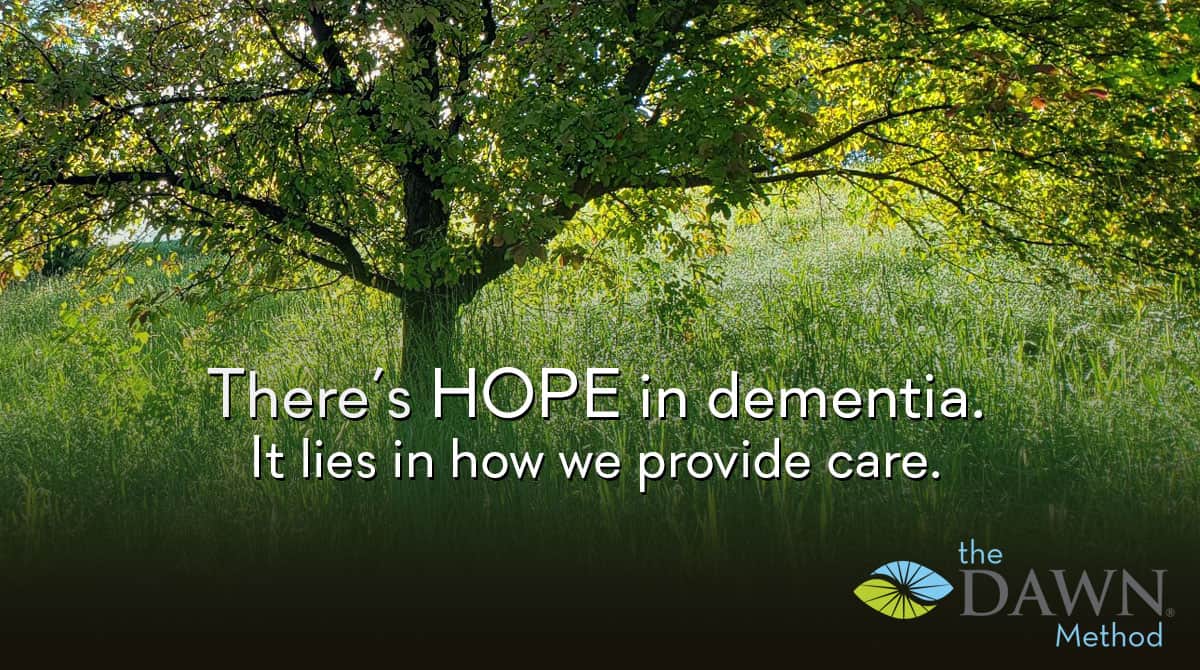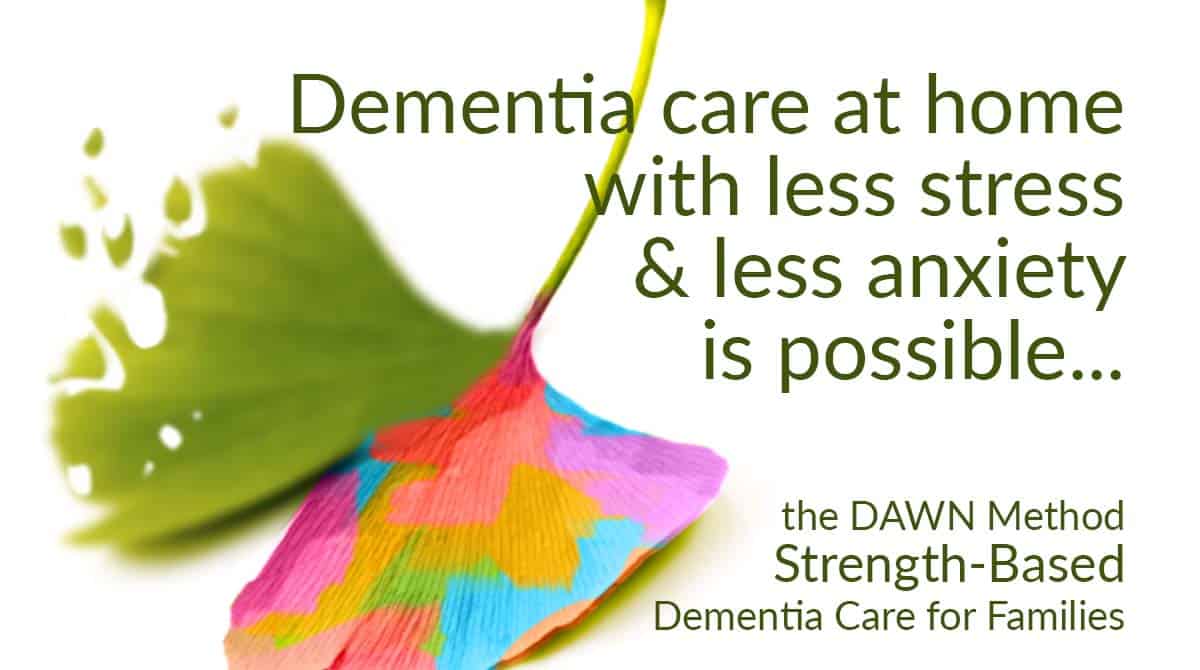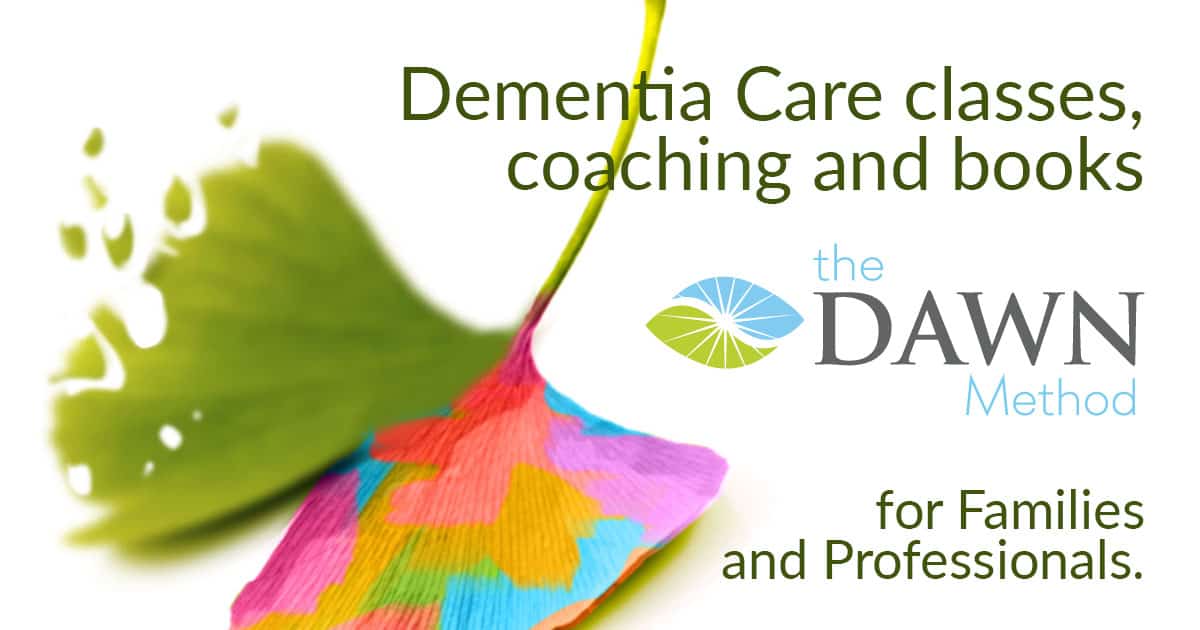Tips for keeping someone safe while supporting selfhood
Promoting independence in dementia is important for wellbeing. When caring for someone experiencing dementia, we need to find ways to let them feel in control of their lives, yet keep them safe at the same time.
Dementia causes memory and rational thinking losses. Losing rational thinking means losing skills such as the ability to perceive cause and effect, prioritize information or actions, or follow a sequence or steps in a task. The result is poor decision making and inadequate self care, putting safety at risk.

How can we help our loved ones stay safe when they’re experiencing dementia? Here are a few techniques that we use here at DAWN.
Pick your battles (agree, then distract)
Whether it’s a toddler, spouse, friend, or someone experiencing dementia that you’re spending time with, no one enjoys being repeatedly told what to do. As dementia care partners, we need to find ways to support our companions’ autonomy. It helps to keep in mind that not everything is truly a danger. Many things are merely undesirable, unpleasant, or unnecessary.
Example: They won’t wear their coat (and it’s extremely cold outside)
Decide at the start of the day that your goal is to give your loved one maximum freedom to do what they want, and to intervene only when essential. Are they determined to wear a flimsy t-shirt on a snowy day? Allow them to experience being chilly and later choose to accept the sweater you brought along “just in case.”
Example: He wants to work in his shop (but power tools are becoming more of a challenge)
Is he bent on going out to work in his shop? Be enthusiastic, then distract him minutes after he gets there with a snack or plea to help you with something back at the house.
Example: She wants to go for a walk (but you know she’ll get lost)
Is she determined to go for a walk? Let her start out, then happen by with the car and suggest a hot chocolate together down at the mall.

Rather than refusing immediately and trying to explain why the idea is a bad one, if there really is danger be supportive in the moment and then supply a distraction later.
Present the lesser of two evils
When something really needs to be done for safety or health and you know that your loved one is likely to balk, present what needs to be done as an option—having carefully chosen a less desirable alternative to present with it.
Example: How to get dementia patients to shower or bathe*
Bathing invariably becomes a problem with dementia, primarily because people experiencing dementia lack the ability to see cause and effect. Yet not staying clean results in skin problems that are very difficult to reverse. Our clients often believe they bathe or shower daily, although they would never choose to bathe on their own. Or, they may have lost their sense of smell and don’t realize they have body odor, or may have had a bad experience being bathed, or simply feel the need to regain a sense of independence through refusal.
Idea 1—Agree that showers are unpleasant, then offer a “spa” bath experience as an alternative
Sometimes it works to agree with the client that showers are unpleasant, then show her a bathtub filled with scented bubble bath in a carefully preheated bathroom with lights dimmed.
Idea 2—Start with the sink and then suggest the tub
Or, we might suggest shampooing in the kitchen sink, which many of our elders remember from their childhoods. Then, later we can suggest a bath or shower “because it feels so good if you don’t get your hair wet.”
Idea 3—Visit a public pool or hot tub (they require us to shower beforehand)
When our efforts to instigate good bathing habits at home fail, we suggest a soak in the hot tub at the local wellness center or YMCA. There, the care partner can model showering before they enter the pool and when leaving, and can do a skin check at the same time.
Empathetic nonverbal communication is key
Keep in mind that, no matter what technique you’re using to preserve both autonomy and safety, the factor that most greatly influences your chance of success is your nonverbal communication. Be truly empathetic. Your genuine concern for your client’s welfare will be apparent and have an effect, for we read other people’s feelings using intuitive thinking—a skill we do not lose in dementia.
*NOTE: We prefer to use the term “person experiencing dementia” rather than “dementia patient.” People are more apt to search on the term, “dementia patient,” so that is what we have used in this case. We mean no disrespect to those who are experiencing and navigating life with dementia.
§


